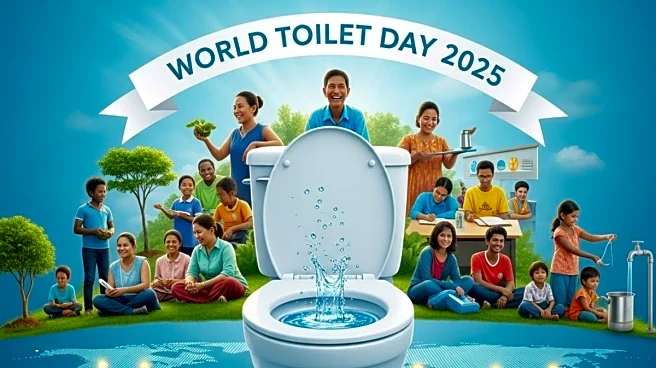World Toilet Day is celebrated on November 19. It is a day that is intended to spread awareness about the necessity for proper toilets and better sanitation, across the globe. World Toilet Day puts the spotlight
on the crucial role played by toilets in the matters of public health, dignity and environmental safeguarding. Below, we take a look at the history and significance of the day, and the efforts undertaken by the governments to ensure safe sanitation.
World Toilet Day 2025: History
Singaporean philanthropist Jack Sim founded the NGO, World Toilet Organisation (WTO) on November 19 to create awareness about sanitation challenges in the world. As the United Nations (UN) declared the right to water and sanitation a human right, in 2010, the idea of World Toilet Day gained more traction, globally. On July 14, 2013, the UN officially declared November 19 as World Toilet Day.
World Toilet Day 2025 Theme
The Theme for World Toilet Day, for 2025, is ‘Sanitation in a changing world.’ The theme highlights the pressing need to invest in sanitation systems and services that are ‘future-ready,’ as per UN Water.
World Toilet Day 2025: Significance
World Toilet Day is a critical awareness drive that reminds all stakeholders to ensure the global citizenry receives safe, affordable and robust sanitation systems, supported by sustained investment. The 2025 World Toilet Day campaign demands that toilets are available to everyone, and are resilient to flooding, droughts and other climate shocks.
World Toilet Day 2025: Key Facts
1. About 3.4 billion still do not have access to safely managed sanitation services.
2. Open defecation is still practised by 354 million people, which increases the risk of disease and harm, especially for girls and women.
3. Contaminated water, inadequ ate sanitation and poor hygiene kill about 1, 000 under-five children every day.
4. Methane emissions from sanitation exacerbates glacier melting and significantly adds to global sea-level rise, threatening coastal sanitation infrastructure and services.
5. WHO/UNICEF data estimates that by 2030, 3 billion people may still continue to live without safe toilets.
World Toilet Day: Government Efforts to Ensure Safe Sanitation
The Indian government at the Centre launched the Swachh Bharat Mission (SBM) in 2014, and has constructed millions of household and community toilets to end open defecation and improve sanitation. This has led to a reduction in diarrheal deaths, as per the WHO, enhanced the safety and dignity of women, led to savings on healthcare costs for families.












/images/ppid_a911dc6a-image-177064312736958527.webp)

/images/ppid_a911dc6a-image-177064308461686397.webp)
/images/ppid_a911dc6a-image-17706430346008117.webp)
/images/ppid_a911dc6a-image-177064303810559815.webp)